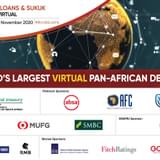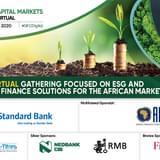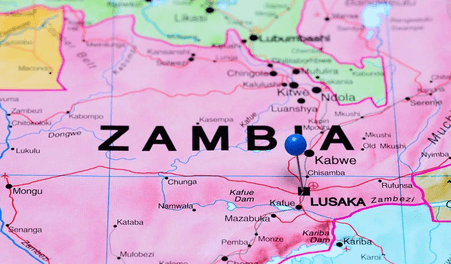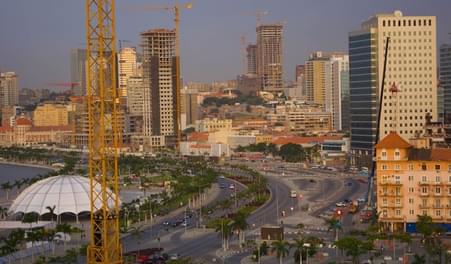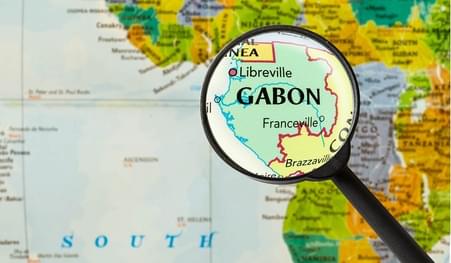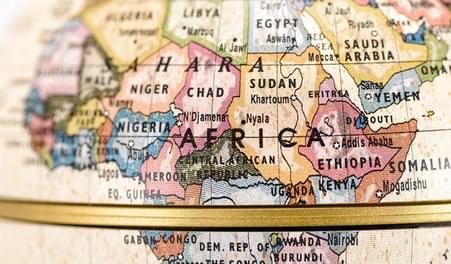Gross Debt to GDP between 2012 to 2015 jumped from 47.94% to 71.5%, while the country’s current account went from -11.71% to -7.85% over the same period. The benchmark 29 July 2023 Eurobond yield went from 7.98% on the 29 July 2012 to a high of 15.66% on the 20th January 2016 and has since been trailing downwards. In addition, the GHS has depreciated over the past five years by 132.65% versus the USD, while Credit Rating agencies have downgraded the country’s Long Term External Credit Rating from B+ in 2014 by S&P to B-, its current rating.
As a consequence, the previous government entered into the ECF agreement with the IMF on 3 April 2015 with an expiration date of the 2 April 2018, for the total amount of SDR664.2mn, or approximately USD941mn, which represents 90% of the country’s quota. To put this into perspective, Cameroon is using, under its ECF arrangement, 175% of its quota. This leaves Ghana some room for more assistance if need be, as under the ECF facility from the IMF, the standard programme allows a country to reach up to 400% of its quota.
While the IMF assistance should put investors more at ease, Ghana does not have a great track record of delivering on economic and fiscal reforms, and even worse, the country has had significant episodes of fiscal slippage ahead of elections.
President Akufo-Addo was most recently elected president with 53.85% of the votes in favour of the New Patriotic Party, beating the incumbent president and his party in the late 2016 elections.
It was France’s Charles de Gaulle who famously asked the question: “How can anyone govern a nation that has 246 different kinds of cheese?”. With the new government in Ghana under President Akufo-Addo, the question could easily be rephrased to: “How can anyone govern a nation that has 110 ministers?” (for the purpose of clarity, this includes 20 regional ministers and their deputies, 40 ministers for various ministries, and 50 deputy ministers).
One could forgive the Ghanaian President for not always speaking along the same lines as his ministers – if only because of the task of managing such a large number of them. Nevertheless, it has come as a surprise to some that the President and the Finance Minister have appeared to speak from different scripts regarding the country’s IMF assistance programme.
While the newly elected party was taking over the reins, another piece of bad news seeped into the public domain. The newly installed Minister of Finance, Ken Ofori-Atta, stated on 1 February 2017 that the government found a GHS7bn (approx. USD1.6bn) hole in the budget. This of course was not kindly regarded by investors or the IMF as, in essence, the country missed all the IMF agreed upon performance criteria for the end of 2016. The Ghana August 2023 Eurobond yields increased by 33bp on the day and the GHS weakened 0.4% versus USD. Alphonse Karr’s famous quote “plus ca change, plus c’est la meme chose” comes to mind.
February this year was the first time that local press in Ghana started mentioning a potential request from local authorities to extend the existing IMF programme until the end of 2018. In May, local news started covering the Ghanaian authorities’ interest in requesting improved terms from the IMF. Throughout June the news continued about the country seeking an extension. In July, however, the President and Minister of Finance appeared to disagree on the IMF programme continuation, as on 18 July Reuters reported that the Ghanaian President said that it will not extend its three-year aid programme with the IMF while on 19 July the Minister of Finance Ofori-Atta was quoted as saying that “there is no question of the IMF programme being extended. It is coming to an end next year with the budget that we are going to prepare,” according to Bloomberg.
Through June, Ghana’s benchmark 2026 Eurobond yields went from a low of 7.45% on 13 June to a high of 7.87% on 20 June or a cash price movement of roughly 2.35bp. To put this into context, the Standard Bank Africa (excluding South Africa) Total Return Sovereign Bond index during that period was down 1.44%, so Ghana underperformed the wider Sub-Saharan African Eurobond universe.
Clearly, having the President and Minister of Finance not appearing to agree upon the need of the IMF programme has been, to some extent, alarming investors. Even if the most recently released data from Ghana points towards a recovery, and the country is slowly getting back on track with its reforms – including an increase in tax revenues as well as continued economic and fiscal reforms – investors have been disappointed too often, with more and more trust eroding each time. It is also important to bear in mind that while many investors hold either the country’s Eurobond or local currency debt in Ghana, not all are dedicated frontier market investors, and as such hold these investments with less conviction than more dedicated portfolio managers. These uncertainties are not helping Ghana’s cause.
Nevertheless, it appears that Ghana is starting to move back on the right track overall. Inflation has been coming down, from a peak of 19.20% in March 2016 to the latest CPI print for July, which came in at 11.9%, giving the Central Bank a lot of room to continue its easing cycle; inflation went from a high of 26% in October 2016 to a current level of 21%. Local bond yields have been coming in strongly, if we consider the 21% 23 March 2020 local government bond; the yield on those notes reached a high of 23.32% on 3 October 2016 and is currently hovering around 18.26%. Foreign ownership of local bonds currently stands around the 38% mark, on the high end for Sub-Saharan Africa.
In late July the government announced its expected drop in the 2017 budget deficit to 6.3% from an earlier estimate of 6.5%. The cut is primarily driven by an increase in government spending cuts to capital expenditure and transfers to state agencies, as revenues have fallen short by 15% in H1 2017. The government further announced plans to limit budgets at a 5% deficit, effective from 2018, which is also along the lines of the IMF agreement.
On 30 August the IMF agreed with the Ghanaian authorities that the ECF facility will be extended by a full year. The latest IMF forecast released with the programme extension would project Ghana’s growth to reach 5.9% by the end of 2017, while government revenues and expenses for 2017 would reach 18.9% and 25.2%, respectively, of GDP. International reserves will stay above three months of import cover, while debt to GDP would reach 70.5% for 2017, down from 72.42% in 2016.
Beyond the usual spikes in yields and valuations, Ghana has prompted a great deal of head-scratching amongst the investor community as of late. The country has nevertheless seemingly come to terms with the assessment that the IMF assistance is needed in the longer term, which is the right decision. However, this does not mean that investors will be complacent going forward; unfortunately, Ghana lost a lot of goodwill in recent years. It is now time to start delivering on its promises, and for the political elite to collaborate to ensure the reforms and adjustments are being managed in a timely manner.
This article should not be considered investment advice and is solely for information purposes only. The views contained within this article represent the opinions of the author.


